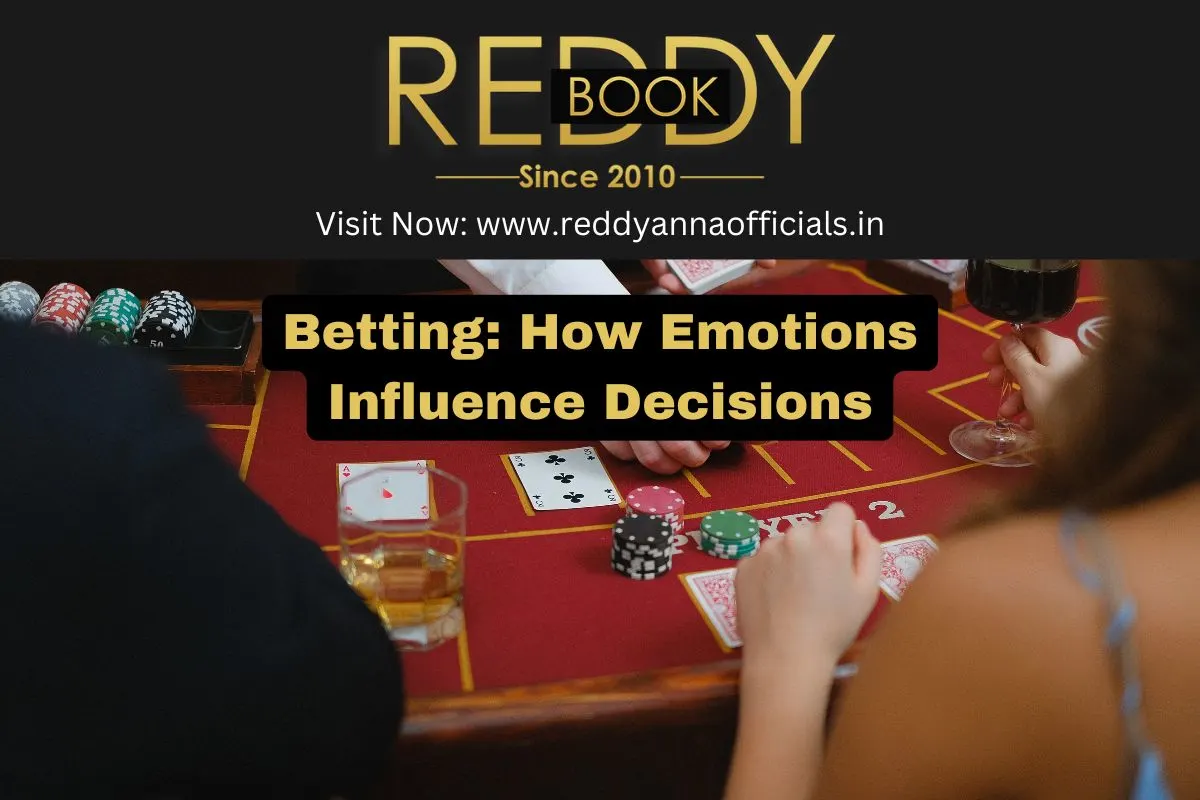Betting: How Emotions Influence Decisions
Published on 2025-04-01 - By Reddyanna team
Views: 5142

Betting is not all about numbers, statistics, and odds; it is, in fact, a psychological game. Every decision a bettor makes is influenced by emotional states, biases, and mindsets. Understanding these psychological factors can help you make better decisions, avoid common traps, and ultimately improve your long-term betting outcomes.
Emotions in Betting: The Highs and Lows
Betting triggers a wide range of emotions—from the thrill of winning to the frustration of losing—which can cloud judgment and lead to irrational decisions.
-
The Rush of Winning
When a big win occurs, it releases a surge of dopamine—the brain's feel-good chemical. This rush creates excitement and boosts confidence, sometimes to the point of overconfidence. As a result, bettors may wager more aggressively, convinced they are on a "hot streak." -
The Pain of Losing
Losing money naturally brings stress and frustration. In an attempt to recover losses, some bettors may make impulsive bets, while others might become overly cautious, hesitating before their next wager. -
The Fear of Missing Out (FOMO)
Witnessing others win can pressure bettors to take reckless bets just to join the excitement. Influences such as social media, betting forums, and influencer predictions can create a FOMO effect, leading to poor decision-making.
Common Betting Biases That Affect Decision-Making
Recognizing common cognitive biases is key to avoiding costly mistakes:
-
The Gambler's Fallacy
The mistaken belief that past events influence future outcomes. For example, after several coin tosses landing on heads, one might irrationally expect tails next—even though the odds remain 50-50. -
Overconfidence Bias
A few wins can lead bettors to believe they have mastered the game, prompting them to place larger, riskier bets without adequately considering the risks. -
Confirmation Bias
This occurs when bettors seek information that confirms their existing beliefs while ignoring data that contradicts them. For instance, a supporter may only focus on statistics favoring their team, overlooking injuries or poor performance. -
Loss Aversion
The pain of losing is often more intense than the pleasure of winning. This can make bettors overly cautious or, conversely, lead them to place larger bets to try and recover losses quickly. -
Anchoring Bias
Bettors may fixate on a particular number—like a past win amount—and use it as a benchmark for future bets, even if it isn’t a reliable indicator of future performance.
How to Develop a Strong Betting Mindset
To make smarter betting decisions, it's crucial to control emotions, recognize biases, and maintain discipline. Consider these strategies:
-
Set Clear Rules
Define how much to bet, when to stop, and what strategies to employ. Clear, preset limits prevent emotional decisions from taking over. -
Accept Variance
Understand that losses are part of the game—even the best strategies won’t win every bet. Accepting variance helps you avoid chasing losses. -
Separate Betting from Emotions
Never place a wager when you’re feeling pressured, angry, or overly excited. Taking breaks after major wins or losses can help clear your mind. -
Write Down Everything
Keeping a record of your bets allows you to track patterns, analyze performance, and identify areas for improvement. -
Focus on Long-Term Profitability
Betting is not about short-term wins but building a sustainable, consistent approach. Focus on strategies that yield long-term gains rather than chasing immediate rewards.
Final Thoughts
Betting is as much a psychological battle as it is a game of numbers. Recognizing how emotions and cognitive biases influence your decisions is key to making smarter, more disciplined wagers. By setting clear rules, accepting the natural variance of betting, and keeping emotions in check, you can develop a strong betting mindset that maximizes your chances for long-term success.
Remember, success in betting isn’t solely about luck—it’s about making informed decisions, managing risk wisely, and continuously learning from your experiences. Bet smart, stay disciplined, and enjoy the game responsibly.
Related Link: The Psychology of Betting: How Emotions Influence Decision-Making